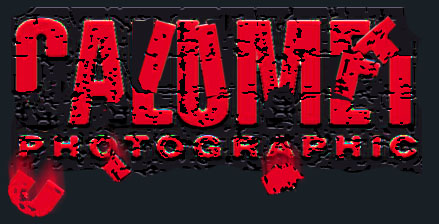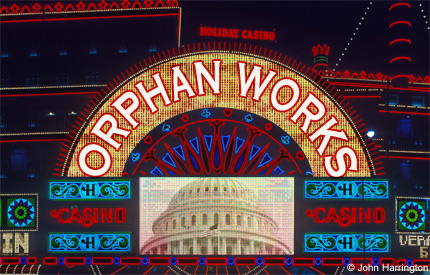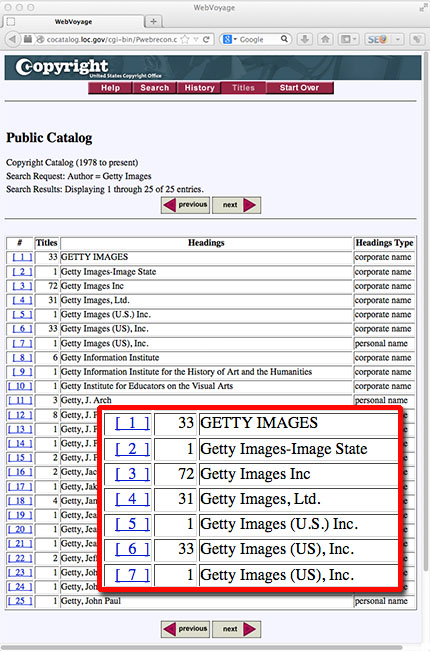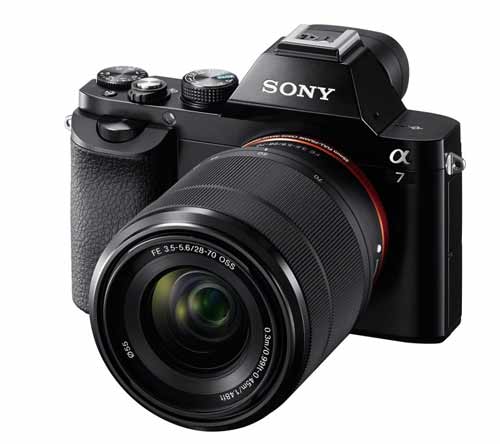Articles

Talenthouse: Predatory Parasite on the Creative Community?
PhotoBusinessTalenthouse would like you to believe that they are the “home for all creatives and art lovers.” But it seems that based on their business model and their predatory terms and conditions, Talenthouse exists for one reason: to suck the lifeblood out of the creative community.
Talenthouse solicits major corporations to pay fees to Talenthouse to provide those corporations with content sourced from the creative community. To source that content for its clients (Coca Cola (NYSE:KO), Adidas (ETR:AG), Universal (NYSE:GE), Microsoft (NASDAQ:MSFT), Proctor & Gamble (NYSE:PG), etc), Talenthouse operates “contests” designed to entice creators to create and submit creative works. Talenthouse members vote to select the “winners” of the contests. But in reality it seems, Talenthouse's clients select the winners. It doesn't matter, because the contests are a sham, just a carrot on a string, or more accurately – a façade for one of the most horrific rights grabs in history.
Talenthouse’s marketing materials promise their corporate clients “ready made content.” After collecting fees from their clients, Talenthouse posts “creative invites” specifying the type and subject matter of the content that their clients require for use in advertising and branding campaigns. Talenthouse’s business model is designed to help their clients to avoid any responsibility to pay for the expenses involved in creating content for use in their advertising and branding campaigns. Under the Talenthouse model, all responsibility for paying for those expenses falls on the creators.
Thousands of creators dedicate their time and money to creating and submitting new works meeting the specifications of Talenthouse’s clients. None of these creators receive reimbursement of those expenses. I would estimate that over well over 90% of the entrants to Talenthouse contests never receive a dime for creating their works. Only a handful – the winners – receive any form of compensation. That compensation -- the “prizes” received by the winners, amounts to a small fraction of the fees typically paid by Talenthouse clients for creative content. By sourcing content through Talenthouse, advertisers obtain creative work for pennies on the dollar.
After thousands of creators around the world submit their works to the contests, Talenthouse’s clients dive in and feast on a bounty of cutting edge, original, creative works, harvesting the contest entries to commercially exploit in their major corporate advertising and branding campaigns.
But that’s not the worst of it. Talenthouse makes every attempt to trick entrants into believing that creators will retain copyright ownership in their works.
In once place in their language, they write:
“When you submit a work to Talenthouse as an entry, you grant Talenthouse a limited license to use your work. You always own the copyright in your work.”
One more time: Talent says “you ALWAYS own copyright in your work.”
Those few entrants who are not lulled into complacency by that statement, and who proceed to read the fine print, will find the rights grabs:
“If you are selected as a winner, then in exchange for a prize, you may be required to license or assign your work to the host providing the prize.”From what I’ve seen to date, in most or all circumstances, the statement “you MAY be required to license or assign your work to the host..” actually means: “you WILL be required to ASSIGN YOUR COPYRIGHT OWNERSHIP to Talenthouse’s clients.”
But even THAT is not the worst of it.
Buried even deeper in the terms and conditions is this gem:
“Upon the Promoter’s and/or Sponsor's request, winners agree to sign ANY AND ALL LEGAL FORMS” deemed necessary to license or assign all right, title and interest in and to the Work, including without limitation, ALL COPYRIGHTS associated therewith, in exchange for the Prizes set forth above.”Hmm. Legal forms? What legal forms? Where are they? What additional, hidden terms will be forced on creators who submit their works to Talenthouse contests? Nobody knows. In the current Talenthouse contest “hosted” by Microsoft and Reuters, Talenthouse failed to post the “legal forms” and when asked, Talenthouse refused to reveal those hidden terms.
So we must ask, publicly - Talenthouse – if you won’t disclose your corporate clients’ (in this instance, Microsoft and Reuters) hidden terms, exactly how are we supposed to know if we’re comfortable with those terms before we enter? Yet again, that’s not the worst of it.
In another one of Talenthouse’s recent contests, “hosted” by Talenthouse client AirBnB, Talenthouse posted one of their client’s legal forms applicable to the contest. The handful of entrants to click through to open that document and read the terms will see that the legal form posted by Talenthouse states:
“…any images submitted will be solely the property of Airbnb.”Under these terms, AirBnB claims copyright ownership of every image entered in the contest, whether the entry wins or not.
So we must ask, publicly - Talenthouse, if “any images submitted will the solely the property of your client AirBnB, why are you telling all entrants “you ALWAYS own copyright in your work?”
Apparently, when Talenthouse says “Our mission is to liberate all artists” what they actually mean is “Our mission is to liberate all artists from their copyrights.”
When Talenthouse says of creators -- “We are dedicated to helping them harness the power of their art to inspire, transform and illuminate,” what Talenthouse actually means is “we are dedicated to helping our corporate clients to exploit your creations in their advertising, in order to sell more products and services.”
Make no mistake about it - Talenthouse is in the business of selling your copyright to their clients.
But all is not lost. The concept behind Talenthouse is good. Its just the Talenthouse terms that are egregiously evil. Talenthouse and their clients need not steal the copyrights of creators. If Talenthouse is, as they claim, comprised of good people trying to do a good thing, they simply need to change the terms of their contests, and to require that their clients do the same.
- Usage of contest entries should be limited to the promotion of the contests. Period.
- Contest winners should NEVER, EVER be required to assign copyright ownership to Talenthouse’s clients.
- The “prizes” provided to winners should not allow Talenthouse clients to make use of winning entries, except for the purpose of promoting the content.
- If Talenthouse clients desire to make use of winning entries, those clients should pay a fair fee to the winners, on par with market rates for the desired usage.
- The winners should receive reimbursement of expenses associated with creating the works.
- Lastly, any terms and conditions applicable to contest entrants and winners must be disclosed to entrants prior to the time of entry, rather than hidden until the contest is over.
It is that simple. Really.
Or, should we continue? Lets.
Talenthouse has announced a parternship with Microsoft and Thomson Reuters Foundation that, if their past contests are any the same, are demanding a copyright transfer to anything you enter that they want - not just winning entries.
With much fanfare, it is suggested that Talenthouse has a contest "…to empower photographers with a series of career opportunities as part of this year’s Trust Women Photo Award." Somehow, empowering women by demanding they give up their rights at an event that is, according to the Talenthouse website (HERE - "... dedicated to the advancement of women’s rights..." doesn't seem right. Now, before anyone suggests that the matter of "womens rights" as it is referenced here is not the same as the broader sentence "...dedicated to the advancement of women’s rights and to the fight against human trafficking...." you would be incorrectly dismissing the value of the rights to photos. Economic challenges are among the many reasons women throughout the world find themselves being taken advantage of and otherwise mistreated. What better than to leave the rights to ones' photographs with the creator, allowing them to earn a living? Talenthouse, Microsoft, and Thomson Reuters Foundation are either intentionally - or, as one might hope,unintentionally - seeking to disenfranchise women from their rights.
Talenthouse writes:
Photographers and photojournalists are invited to submit images capturing the lives and stories of remarkable women around the world, who are achieving incredible things in their communities.So, any photographer (male or female) that submits the images is subject to an all-rights grand and demand, and whenever Talenthouse and/or their partners want copyright, must transfer copyright, even if they don't win?
What's interesting is that the conditions for entry into the Talenthouse Airbnb contest state (HERE):
DISCLAIMER: When you submit a work to Talenthouse as an entry, you grant Talenthouse a limited license to use your work. You always own the copyright in your work. Talenthouse never owns the copyright in your work. If you are selected as a winner, then in exchange for a prize, you may be required to license or assign your work to the host providing the prize. If you do not want to license of assign your work in exchange for a prize, an alternate winner will be selected and you will retain copyright to your work.So, Talenthouse says "you always own the copyright in your work. Talenthouse never owns the copyright in your work." No, "always" is not true. And, while "talenthouse suggests they never own the copyright in your work" the fact remains that you agree to transfer/assign your copyright, and if you don't, someone else will be the winner and only then "...you will retain copyright to your work."
Not so fast. Read further down:
7. Grant of Rights. By entering the Contest, entrants irrevocably grant the Promoter and Sponsor, its subsidiaries, divisions, affiliates, designees, clients, sponsors, licensees, and advertising and promotional agencies, an unlimited, worldwide, perpetual, non- exclusive, royalty-free, unconditional license and absolute right to edit, post, publish, store, copy, transmit, publicly display, and exhibit, the Work (in whole or in part) in connection with the Contest and/or the promotion of the Contest. Upon the Promoter’s and/or Sponsor's request, winners agree to sign any and all legal forms deemed necessary to license or assign all right, title and interest in and to the Work, including without limitation, all copyrights associated therewith, in exchange for the Prizes set forth above.Let's focus on that last sentence:
Upon the Promoter’s and/or Sponsor's request, winners agree to sign any and all legal forms deemed necessary to license or assign all right, title and interest in and to the Work, including without limitation, all copyrights associated therewith, in exchange for the Prizes set forth above.Ignoring the entire paragraph except this, (the entire paragraph still applies, and is horrendous) any any all images entered, upon request of the sponsor, are required to be transferred to the sponsor.
So, the AirBnB contest, which, by the way, involves the storied Chiat Day advertising agency, could easily hire a photographer to shoot work for AirBnB. Unfortunately, they are using Talenthouse to produce spec work around the world, for free. Remember spec work? That's where you cover all the expenses and shoot for free and maybe make money.
Contests pit corporations making money against the hopes and dreams of photographers who want to get exposure and succeed. The only winners here are Talenthouse and their sponsors. It's a facade for a rights grab. It's horrible. Talenthouse is a creative parasite leeching the talent from entrants and leaving them with no ownership of their work. In the end, it may be that Talenthouse is contributing to the "starving artist" station in life and they will have to be providing an actual "house" to their talent who will be homeless if they look to Talenthouse for creative support.
Please post your comments by clicking the link below. If you've got questions, please pose them in our Photo Business Forum Flickr Group Discussion Threads.


















